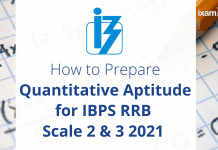The Securities and Exchange Board of India (SEBI) was established in 1988 with the objective of regulating the capital market in India, safeguarding the interests of investors, and promoting the growth of the market. It plays a vital role in ensuring transparency, fairness, and integrity in the securities market. In this blog, we will explore the various roles and responsibilities of SEBI in regulating the capital market, along with examples and bullet points for better understanding.
About SEBI
The Securities and Exchange Board of India (SEBI) was established on April 12, 1992, under the SEBI Act, 1992, and operates under the regulatory oversight of the Ministry of Finance, Government of India. SEBI is headquartered in Mumbai and has regional offices in major cities across India. It consists of a governing board that includes representatives from the government, as well as experts from various fields like finance, law, economics, and accountancy.
- SEBI is empowered with substantial regulatory powers to oversee the securities market and enforce compliance with regulations to protect investor interests and promote market integrity.
- The organization continuously strives to enhance its regulatory framework and keep pace with evolving market dynamics to maintain the stability and efficiency of the Indian capital market.
Regulating the Securities Market
SEBI is responsible for regulating the securities market in India. It formulates policies and guidelines to ensure the smooth functioning of the market and protect the interests of investors. Some of the roles played by SEBI in regulating the securities market include:
- Monitoring and supervising the functioning of stock exchanges, brokers, and other intermediaries.
- Conducting regular inspections and audits to ensure compliance with the regulations.
- Taking action against market manipulation and unfair trade practices.
- Issuing guidelines and regulations to govern public offerings and listing of securities.
Example: SEBI has introduced the concept of circuit breakers to prevent excessive volatility in the stock market. These circuit breakers halt trading temporarily if there is a significant movement in either direction, protecting investors from sudden and drastic price movements.
Monitoring Insider Trading
SEBI is entrusted with the task of monitoring insider trading, which refers to the buying or selling of securities based on non-public information. It is a key role of SEBI to prevent unfair advantage and maintain market integrity. The responsibilities of SEBI in monitoring insider trading include:
- Establishing strict regulations and guidelines to prevent insider trading.
- Conducting investigations and taking action against individuals or entities found guilty of insider trading.
- Promoting investor education and awareness regarding the consequences of insider trading.
Example: SEBI conducted an investigation into a major corporate insider trading case involving a company’s officials leaking sensitive information to a select group of individuals. SEBI’s action resulted in severe penalties and legal consequences for those involved, sending a strong message against insider trading.
Preventing Market Manipulation
Market manipulation is a deceptive and illegal activity that undermines the integrity of the securities market. SEBI plays a crucial role in preventing market manipulation and ensuring fair market practices. The responsibilities of SEBI in preventing market manipulation include:
- Conducting surveillance and market intelligence to identify any suspicious activities.
- Investigating and taking legal action against individuals or entities involved in market manipulation.
- Collaborating with other regulatory bodies and exchange platforms to share information and monitor market activities effectively.
Example: SEBI detected an instance of market manipulation where a group of traders artificially inflated the share prices of a particular company to attract unsuspecting investors. SEBI promptly intervened, suspended trading in the shares, and initiated legal action against the manipulators to safeguard investors’ interests.
Ensuring Transparency
Transparency is fundamental for building trust and confidence in the capital market. SEBI lays emphasis on ensuring transparency in information flow and communication between companies and investors. The responsibilities of SEBI in ensuring transparency include:
- Mandating companies to disclose accurate and timely information about their financial performance, corporate actions, and other relevant events.
- Requiring listed companies to maintain a comprehensive website with relevant information accessible to the public.
- Regularly reviewing disclosure norms and guidelines to enhance transparency and keep pace with evolving market dynamics.
Example: SEBI introduced the concept of Corporate Governance, which emphasizes the disclosure of relevant information to shareholders, ensuring transparency in decision-making processes and protecting minority shareholders’ rights.
Setting up Market Infrastructure
An efficient and robust market infrastructure is essential for the smooth functioning of the capital market. SEBI actively participates in establishing and regulating market infrastructure. The responsibilities of SEBI in setting up market infrastructure include:
- Regulating stock exchanges, depositories, clearing corporations, and other market intermediaries to ensure compliance with norms and standards.
- Introducing technology-based trading platforms and settlement systems to enhance efficiency and reduce transaction costs.
- Collaborating with market participants and technology providers to update and evolve market infrastructure as per the changing market landscape.
Example: SEBI played a significant role in establishing the National Stock Exchange (NSE) and the Bombay Stock Exchange (BSE), which are the leading stock exchanges in India, providing a transparent and efficient platform for trading and investment.
Regulating Intermediaries
SEBI also regulates intermediaries such as brokers, merchant bankers, mutual funds, and investment advisors, among others. The responsibilities of SEBI in regulating intermediaries include:
- Registering and licensing intermediaries after ensuring compliance with eligibility criteria and requisite qualifications.
- Conducting periodic audits and inspections to monitor compliance with regulations and guidelines.
- Taking necessary action against intermediaries violating rules, including suspension or cancellation of licenses.
Example: SEBI has mandated Know Your Customer (KYC) norms for intermediaries to verify the identity of their clients and prevent money laundering and unauthorized trading activities.
Investor Protection
The protection of investor interests is paramount for SEBI. It strives to create a secure and fair investment environment. The responsibilities of SEBI in investor protection include:
- Educating and creating awareness among investors about market risks, investment products, and rights and responsibilities.
- Establishing grievance redressal mechanisms to address investor complaints and ensuring timely resolution.
- Encouraging the adoption of best practices by market participants to safeguard investors’ interests.
Example: SEBI introduced the Investor Protection Fund (IPF), which provides compensation to investors who have suffered losses due to fraudulent or negligent conduct of registered intermediaries.
How Understanding SEBI’s Role in Regulating the Capital Market Can Benefit Aspirants
For individuals aspiring to build a career in finance or investments, gaining knowledge about the role of SEBI in regulating the capital market can be immensely beneficial. Here’s why:
1. Enhanced employability: By familiarizing themselves with SEBI’s regulations and guidelines, aspiring professionals demonstrate their understanding of the legal framework governing the capital market. This knowledge is highly valued by employers in financial institutions, including banks, brokerage firms, mutual funds, and investment companies. It sets aspirants apart from their peers and increases their employability prospects.
2. Improved decision-making: Aspirants who understand SEBI’s regulatory functions can make more informed investment decisions. They know the rules and norms that govern various securities and market intermediaries, enabling them to assess risks better. This knowledge equips them to identify potential frauds or scams and make wiser investment choices, protecting their own finances and those of their clients if they pursue a career in financial advisory services.
3. Compliance and ethical practices: Complying with SEBI regulations is crucial for all entities functioning in the capital market. Aspirants who are well-versed in these regulations can facilitate adherence to legal and ethical standards within organizations. They can contribute to establishing robust compliance frameworks, ensuring that the organization’s operations align with SEBI’s guidelines. This expertise in compliance and ethical practices is highly sought after in the financial industry.
4. Investor education and guidance: SEBI places significant emphasis on investor education and protection. Aspirants who understand SEBI’s initiatives in this area can play a vital role in educating and guiding investors. Whether they work in organizations that directly interact with investors or participate in SEBI’s investor awareness programs, aspirants can help investors make better-informed decisions, ensuring their financial well-being.
5. Contribution to market development: SEBI’s role in developing the capital market extends beyond regulation. The organization actively promotes initiatives to expand the market, introduce new products, and create investor-friendly processes. Aspirants who are knowledgeable about SEBI’s developmental activities can actively contribute to these efforts in their future roles. They can participate in policy discussions and offer innovative ideas to strengthen the capital market ecosystem.
Conclusion
SEBI plays a crucial role in regulating the capital market in India, ensuring transparency, fairness, and investor protection. Its efforts in monitoring insider trading, preventing market manipulation, and setting up the necessary market infrastructure contribute to the growth and development of the capital market. By continually evolving its regulations and keeping pace with market dynamics, SEBI remains committed to maintaining the integrity and efficiency of the Indian securities market.













